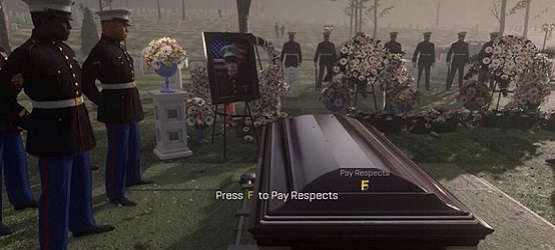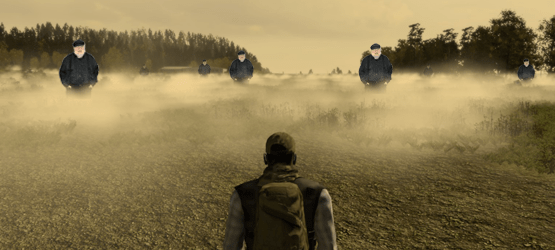One of the most powerful aspects of video games has been their ability to not only tell us a story, but to let us experience it. However, the level of interaction and story that a game gives has become an ever evolving concept, and one that we are going to discuss on today’s Daily Reaction.
Dan: It is no secret that I think video games have as much, if not more ability to move an audience as any piece of art, movie or book ever made. The reason that I think this is true, is that not only can it allow us to visually connect with a situation or moment, but it can also let gamers experience the events. The only issue with this is that I don’t think we have quite figured out how to balance out the ability to allow free will by letting the player control a character’s actions, but to also funnel them down a predetermined narrative. Which I think is the main draw for other titles that solely rely on gameplay, as opposed to telling a tale.
This is the main reason why I think we see so many games having a diverging style of narrative, or forgoing it altogether. A game like Dragon Age will let players experience a completely realized world filled with multiple levels of context that can be completely missed, or let them better embody a role. As they travel from town to town, completing various side quests they are reliving a highly predetermined series events, but short of how each encounter plays out, their experience is the same as everyone else’s.
On the other end of the spectrum, we can have titles that do little more then give the player a character, a world and a simple goal to reach. While this may seem like less of a narrative experience to some, I do think that there is something being built within a style that gives full control so that they can create their own tale. If you have ever played a game like Day-Z, you would see just how easily events in a world can start to write a narrative on their own.
Sneaking through an abandoned town, avoiding a scattering of zombies, only to end up under fire by another player acting as the spotter for a bigger group, is the start to a dynamic narrative that is being written by the user base. The only issues with something like this, is the games ability to help drive the story forward and its ability to express tone, as the number of permutations would be almost countless in a dynamic environment. If it were possible to expand on the AI of NPCs, the ability for an event like this to almost parallel the more narrative driven side quests in games like Dragon Age is possible, as we could use them to push tension in a more controlled climate, such as them sending help to a pinned player.
While this may sound like I am against games that are strictly narratively driven, whether through text, or even through cutscene heavy games like The Order 1886, but that isn’t true. As I think both styles of narrative are trying to push toward each other to find a middle ground that allows for gamers to have a unique experience, as well as something meaningful, and the only way for us to get there is for developers to experiment with how we tell stories.

Chandler: Why not have both? The beautiful thing about video games is that it is a huge medium, and something that allows us to have games from strictly narrative focused titles that forego much exploration or freedom — known to some as hallway simulators — to massively open games that have little in the way of a focused direction or narrative, but allow players to craft their own anecdotes. And we even get everything in between. Seems to me like we can have our cake and eat it too. If one game isn’t up your alley, there’s a good chance that something recently released or coming soon will be more for you. If not, perhaps you’re being too picky?
I love a good, strong story. I very much enjoyed The Order for what it was, accepting that it was simply trying to tell a story while allowing me to interact with the characters and the world. It was allowing my involvement, which is something movies and TV shows just can’t do. A great example of this is the “Press X to Pay Respects” prompt in Call of Duty Advanced Warfare. No, it’s not a choice. Yes, you have to do it. But this moment is connecting you, the player, with Jack Mitchell, the main character, in order to help you better connect and sympathize with the emotions present in the story being told. It’s a simple interaction. A simple prompt. But one that goes a long way towards creating that bond to the narrative early in the campaign.
QTE’s — quick time events — were born from this same ideology. Instead of simply watching a cutscene as if it’s a movie, interspersed by disconnected gameplay segments, the game is allowing you to continue to be a part of that character’s story by interacting with the events being shown. Isn’t that what games are all about? Have some developers misused the QTE? Absolutely. Sometimes it’s used as gameplay filler and not used to maintain your interaction with the story being told, but adding a simple “Press X” prompt can be the difference between watching an event, and that empathetic connection with your character.
All that aside, I love some non-narrative focused games too. Online worlds in particular allow players to craft some unique narratives with themselves, friends, and random online players. Dan, you and I have played tons of games online, creating inimitable experiences in the likes of Destiny, The Last of Us Remastered, and many others. The developers provide the canvas, the background, and the environment to play in, and we are able to have our own unscripted stories come to life, much like you talked about with Day-Z.
Fortunately I don’t have to choose. I can go from the scripted interactive experience of a game like The Order and jump right into something a little more open and unscripted. They aren’t mutually exclusive. One does not have to be definitively better than the other. As long as the player feels a level of immersion and connection to the game whether through orchestrated beats or naturally occurring moments, developers are certainly doing something right.
What kind of stories do you like to experience? Would you rather have a heavy narration? Or an open-ended one? Feel free to let us know below, or tell us a story by reaching out to us on Twitter @Foolsjoker and @Finchstrife, email us at DailyReaction@PlayStationLifeStyle.net and have your tale live forever in our inbox.
Make sure to catch-up on our previous Daily Reaction articles here.








